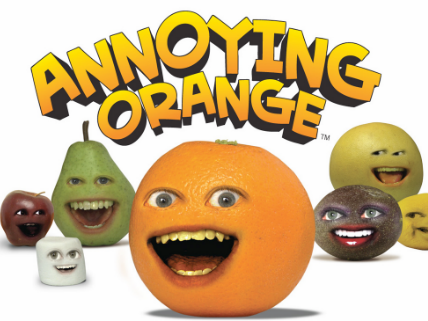New York's Highest Court Upholds the Right to Be Annoying

Yesterday, in a bizarre case involving a longstanding academic dispute over the origins of the Dead Sea Scrolls, the New York Court of Appeals, that state's highest court, overturned a law that criminalizes annoying speech. As a result, behavior that Grand Rapids, Michigan, decriminalized in March is now legal in New York.
The case involved Raphael Golb, who in 2010 was convicted of 30 crimes in connection with an elaborate and persistent Internet campaign aimed at vindicating the views of his father, University of Chicago historian Norman Golb, and discomfiting the elder Golb's critics. The convictions, for which Golb received a sentence of six months in jail and five years of probation, included three counts of aggravated harassment in the second degree, a Class A misdemeanor punishable by up to a year in jail. As relevant here, the offense includes communicating with someone "in a manner likely to cause annoyance or alarm" and "with intent to harass, annoy, threaten or alarm." That language, the court unanimously concluded, is too broad and vague to be consistent with the First Amendment or the New York Constitution's free speech guarantee.

Quoting an earlier case, the court said "any proscription of pure speech must be sharply limited to words which, by their utterance alone, inflict injury or tend naturally to evoke immediate violence." That's a reference to Chaplinsky v. New Hampshire, a 1942 case in which the U.S. Supreme Court approved criminal penalties for "fighting words." The defendant in that case, a Jehovah's Witness who attracted a hostile crowd by denouncing organized religion as a "racket" on the streets of Rochester, New Hampshire, was arrested for calling a city marshal "a goddamned racketeer" and "a damned fascist." The Court never again used the "fighting words" doctrine to uphold speech restrictions, which is just as well, given the utterly subjective nature of a test that hinges on anticipated emotional reactions to insulting or offensive utterances. In any case, all of the interactions that led to the harassment charges against Raphael Golb took place online, a situation quite different from the in-person encounters the Court evidently was imagining in Chaplinsky.
The Court of Appeals vacated Golb's three harassment convictions, along with several other convictions based on allegations that did not meet the statutory definitions of those crimes. But it left in place 10 counts of forgery in the third degree and 10 counts of criminal impersonation in the second degree, based on email messages in which Golb pretended to be his father's academic nemeses. Both of those crimes are Class A misdemeanors.
Chief Judge Jonathan Lippman, disagreeing in part with his six colleagues, said he would have dismissed the entire indictment against Golb. He argues that the criminal impersonation statute is "unconstitutionally broad" and that using the forgery statute to punish the same actions is "similarly objectionable":
Treating pseudonymous emails as forgeries when they are made with some intent to "injure" in some undefined way is no different than penalizing impersonation in internet communication for the same amorphous purpose. Both treatments give prosecutors power they should not have to determine what speech should and should not be penalized.
The other judges suggest that Golb hurt his victims by damaging their reputations. (For example, he confessed to plagiarism while impersonating one scholar.) While "it would be difficult to find the conduct by defendant detailed in the majority opinion admirable," Lippman says, that does not mean it was criminal. "If defendant has caused reputational injury," he writes, "that is redressable, if at all, as a civil tort, not as a crime."
Lippman makes a good point, but at least the court recognized the threat to free speech posed by the ban on intentionally annoying people. Manhattan District Attorney Cyrus R. Vance Jr. told The New York Times about 900 people were charged with that crime in the borough last year, typically in cases involving domestic disputes. Ronald Kuby, an attorney who was involved in Golb's defense at an early stage of the case, welcomed the decision as victory for "the demented and dissident, the crazies and the critical, the malcontents and the maladjusted."
Editor's Note: As of February 29, 2024, commenting privileges on reason.com posts are limited to Reason Plus subscribers. Past commenters are grandfathered in for a temporary period. Subscribe here to preserve your ability to comment. Your Reason Plus subscription also gives you an ad-free version of reason.com, along with full access to the digital edition and archives of Reason magazine. We request that comments be civil and on-topic. We do not moderate or assume any responsibility for comments, which are owned by the readers who post them. Comments do not represent the views of reason.com or Reason Foundation. We reserve the right to delete any comment and ban commenters for any reason at any time. Comments may only be edited within 5 minutes of posting. Report abuses.
Please to post comments


Is all the article text gray for anybody else? Abominable.
The Court never again used the "fighting words" doctrine to uphold speech restrictions, which is just as well, given the utterly subjective nature of a test that hinges on anticipated emotional reactions to insulting or offensive utterances.
Even worse, it basically encodes into assault law the idea that it's OK to punch someone if you're angry, and if the judge thinks he would have been angry, too, in your situation.
How's "Fuck you, you don't get to punch people even if they say that religion is a racket!" grab you? That definitely sounds like a more coherent moral and legal theory than the Fighting Words doctrine.
This astounding case, which is documented at
http://raphaelgolbtrial.wordpress.com/
also hinges on the "anticipated emotional reactions" of an audience, because the criminalized "Gmail confessions" can simply be read as deadpan mockery designed to expose the alleged misconduct of certain academics. Indeed, it is difficult to imagine the recipient of a "confession" to plagiarism seriously believing, for any lengthy period of time, that the "author" has really confessed. Anybody here know any university department chairmen who go around confessing to plagiarism?
Of special interest is the brief of the National Association of Criminal Defense Lawyers (see the above-lined website), which states that if certain individuals "feel aggrieved by online speech with academic value," they should have recourse in civil rather than criminal courts.
I'm shocked that New York had to uphold someone's fundamental right to be an asshole.
In a state teeming with assholes, I'm not surprised that the law eventually died. This sort of test case was inevitable.
Do you suppose we can stick it to Thom Hartmann now?
Crap. If I'd known about this law a few months ago, I'd have prosecuted Piers Morgan. Sigh.